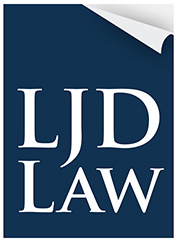The appointment and use of commercial agents and distributors to develop markets, both domestic and overseas, and to increase sales of goods and/or services is a well-established commercial practice. But what are the distinctions between, and the respective advantages and disadvantages of appointing, agents and distributors? How do you know you are going down the route that best suits your business?
The Basics
Agency – In broad terms, under English law an agent has the power to bind the party appointing the agent (the ‘principal’) to contracts with third parties. As such, the agent needs to have appropriate authority to do so, usually by way of a contract.
There are three different types of authority that a principal can grant an agent:
- Actual – where the agent and his principal have agreed, expressly or impliedly, that the agent has the relevant authority to act on the principal’s behalf.
- Ostensible or Apparent – this is the authority of the agent as it appears to third parties – essentially, the principal represents (in words or by conduct) to a third party that the agent has the relevant authority.
- By ratification – where the principal subsequently ratifies the agent’s actions in circumstances where the agent did not have the relevant authority at the time of his actions.
With a commercial agency, one party (the principal) appoints another party (the agent) to introduce business and/or customers to the principal and/or to promote sales of the principal’s goods or services.
It is possible to have a ‘disclosed’ or an ‘undisclosed’ agency. A ‘disclosed agency’ arises where the third party is aware that the agent is acting on behalf of another person whereas an ‘undisclosed agency’ occurs where the third party does not know that the agent is acting on behalf of another person.
Under common law, a number of duties are imposed on the agent, including duties to comply with the principal’s instructions; to act within the scope and limits of the agent’s authority; to account to the principal for money and profits; and not to make a secret profit or accept bribes.
There are different types of agency:
- Exclusive – the principal agrees that it will not actively seeking sales in the agent’s territory and will refrain from appointing other agents or distributors in that territory, but the principal may reserve some rights, for example, to continue to supply certain identified customers or classes of customers in the territory.
- Sole – the principal agrees not to appoint another agent or resellers for the agent’s territory but reserves the right for itself to actively seek sales in the territory.
- Non-exclusive – the principal is able to appoint other agents and resellers to and may itself actively to seek sales in the territory.
The Commercial Agents (Council Directive) Regulations 1993 (the CARs) impose certain requirements on commercial agents and those appointing them but, in broad terms, the agent acts as an extension of the principal – in other words, the agent normally introduces customers to the principal and the principal contracts directly with those customers.
The principal is, in effect, responsible for the actions of the agent, which makes it essential for the principal to have a written contract in place with the agent that clearly sets out the scope of the agent’s authority, including any limitations.
Distribution – In contrast to agency, with a distribution arrangement a manufacturer, importer or supplier will appoint a distributor to re-sell their goods and/or services.
The distributor purchases the goods from the manufacturer, importer or supplier, taking the risk in those goods, and then re-sells them to customers. In other words, the distributor contracts directly with the customer.
Unlike agency, in the UK there are no specific laws imposed on distributors, but distributors will be subject to and have to comply with general commercial contract and competition laws as well as common law rules.
Key Considerations
Ensuring you have given consideration to key areas is vital. If you’d like a copy of our guide, please contact us.
Disclaimer: This article is provided for information purposes only and does not constitute legal advice. Professional legal advice should be obtained before taking or refraining from taking any action as a result of the contents of this article.
